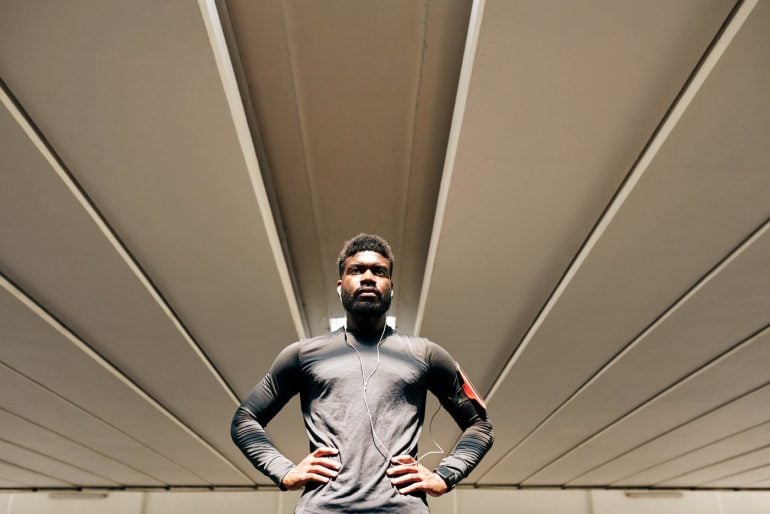When it comes to pursuing our goals in life, what matters most?
It’s easy to assume talent, or maybe intelligence. Luck probably figures in there, too. But in reality, it’s none of those – or perhaps it’s all of those combined, plus one magic ingredient: mental toughness.
It’s the grit that makes the difference
“Mental toughness, or ‘grit’, is the difference why some people accomplish their goals while others don’t,” says health psychologist Shilagh Mirgain, PhD.
Research suggests that in reality, intelligence is only 30 percent of the reason people are successful — and that’s backed up by different studies which have found those who can stick it out and push forward are more likely to succeed.
At West Point, for example, a cadet’s grit was the biggest predictor for whether they would complete a rigorous and difficult summer training program, while Ivy League students who rated as having high levels of grit often had higher GPAs than their peers, despite having lower SAT scores.
Why does it make such a difference? Grit is really made up of two components:
1. Passion: What drives you to pursue your goals
2. Perseverance: What keeps you going even when you encounter setbacks and challenges
The ability to keep going even in the face of setbacks means you’re more likely to reach your goal, whether that’s a personal or a professional one. And it’s a trait you can cultivate with a little effort.
“Luck is what happens when preparation meets opportunity.”
– Seneca
“Grit is like a muscle — you have to keep working and exercising it in order to strengthen it,” Mirgain adds.
Find your passion and your purpose
To help cultivate grit, she offers a few suggestions.
Watch a young child who loves to build things and you’ll see passion at work – that spark that ignites our interest and continues to drive us forward with an almost one-track mind. And it can be easy to lose that as we get older and daily responsibilities weigh heavily on us. After all, sometimes it’s less about loving what you do, and more about needing to pay your bills.
But, research shows that people are significantly more satisfied with their work when they are doing something that aligns with their personal interests. They perform better, are more helpful to co-workers and stay at jobs longer.
ALSO SEE: Can’t find a dream job? Create your own
While it can be amazing when our passions and our careers align, the reality is that sometimes they can’t. But that doesn’t mean there’s no hope. Through volunteer work, hobbies, or extracurricular activities we can continue to cultivate that passion that drives us. And, through that passion, we can discover a sense of purpose.
“Purpose is the intention to contribute to the well-being of others,” explains Mirgain. “You can continually look at what you do and how it connects to the bigger picture.”

3 questions to uncover your sense of purpose
To help uncover our sense of purpose, Mirgain suggests asking three questions:
How does the work you are already doing make a difference in the lives of others?
How does or can your work connect to expressing your core values?
Who inspires you to become a better person?
The additional benefit is that discovering our sense of purpose can help re-ignite or even create a new sense of passion for what we do.
Practice, practice, practice
“When you set a goal, attempting something you cannot already do can be frustrating and uncomfortable,” Mirgain says. “But it is through daily practice — the discipline to do things better than the day before — that it becomes comfortable.”
Grit comes into the picture because its essence is consistency — showing up every day to do the best you can and to try to do things better than the day before.
If something is frustrating our natural tendency is to give up. But you have to do things over and over again for them to feel natural and grit is what keeps pushing us forward, making us try again each day.
Think about professional athletes who work on the same throw, the same leap, the same kick every day. They make practice a deliberate exercise.
And we can take a lesson from them. If we’re working toward a goal we can set aside time each day to do work on it. Whether that’s doing homework so we can get better grades, taking classes to improve our career possibilities, going out for a run — the more we do it, it becomes a habit and something we don’t even think about because it’s a natural part of our day.
Surround yourself with supportive people
When Mirgain neared the top of Mount Kilimanjaro, a goal she had worked toward for 20 years, her strength began to fade. It was at that point that her guides linked arms with her, and together they reached the summit.
When faced with challenges, having people around you who can hold you up when you are struggling to move ahead can make all the difference.
“The presence of support is one of the things that gives us the strength to keep moving forward and to take risks. We feel like the highs and lows — the successes and the failures — are shared by others, and we can know we’re not alone,” says Mirgain.
Listen to your thoughts
What are you thinking when the going gets tough? Is it “This is temporary and I’ll get through this?” or something negative, like, “I knew I wasn’t good enough”?
We can undermine our efforts when we let our negative self-talk take over. If you find yourself caught up in negative thinking, try to recognize what’s going on — ask yourself whether your thoughts are helpful or if they’re distorted?
“You can’t think your way out of fear or discomfort, but you can feel the fear and continue forward anyway,” Mirgain says.
Keep your glass half full
Learned optimism — or hope — defines every aspect of grit. When you have doubts — and you will — hope can keep you going even when things don’t always go your way. Whether we experience a setback in our attempts to reach a goal, or we experience a devastating life event like the loss of a loved one or medical diagnosis, grit helps us get out of bed in the morning while hope keeps us standing.
While some individuals seem naturally hopeful, we can practice optimism, even if our tendency is to focus on the half-empty glass. And it goes back to listening to those thoughts.
Using the example of the athlete — a pessimist may say he strikes out at baseball because he’s not good enough. An optimist, on the other hand, can reframe the thought to say it’s not about ability, it’s about practice, and with more practice, he won’t strike out as much.
When we can reframe our thoughts to focus externally — practice makes perfect — rather than internally, we can begin to see the world of possibilities in front of us and know we’re capable of achieving whatever we put our mind to.
This kind of mindset is just one aspect of self-care that when coupled with grit makes for long-lasting results. We can’t sustain grit without a good dosage of restorative activities alongside. Otherwise, we end up over-extending ourselves and burning out.
Basic self-care habits such as getting sufficient sleep, eating a well-balanced diet, engaging in fun, recreational activities, spending time in nature, enjoying some downtime all lead to greater performance, productivity, focus, and better decision making — and working towards our goals becomes more sustainable and creative.
It makes it more likely to reach them as we remember that isn’t just about reaching the destination, it’s about enjoying all the steps of the journey to get there.









